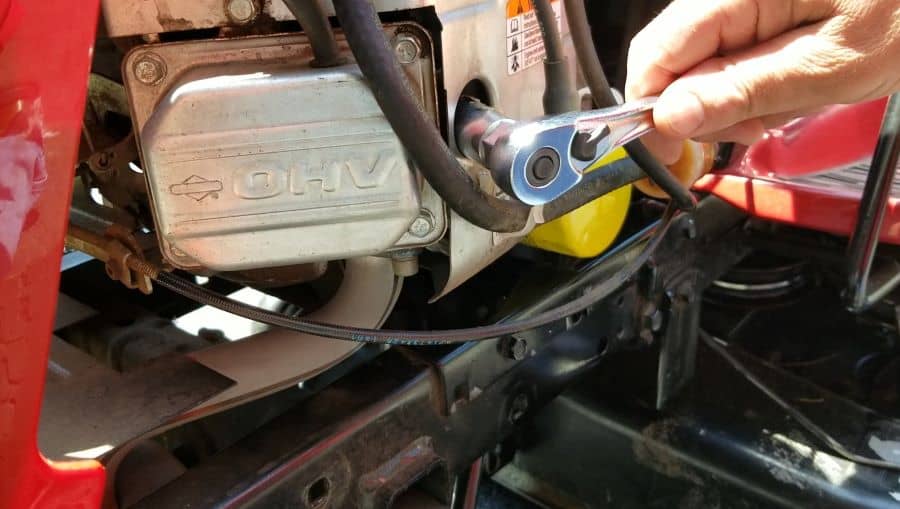
Engine backfire ocurrs when fuel is forced out of the engine before it was able to ignite and, is subsequently ignited within the exhaust pipe resulting in a loud, often startling popping sound.
Typically, when a small engine is running at a highspeed, meaning a high rate of cycles/second, is decreased suddenly, the fuel that would have been required at a high rate will still be injected into the engine during a slower cycle and then, miss its ignition due to the rapidly slowed rate of the engine. This forces the fuel to be pushed out of the engine and into the exhaust where it then ignites by way of heat and causes the loud pop we are all familiar with. It should be noted that a backfiring does not affect your engine in any way.
How to Prevent Backfiring in a Small Engine
The most immediate way to prevent a backfire is to decrease the engine’s rate of speed more slowly, giving the fuel intake and the ignition provided by the engine to stay in sync with one and other allowing the fuel to be properly spent.
Ethanol content whithin the gasoline can cause backfireing as the fuel ages. Fuel should not be left to sit untreated for more than 30 days. Doing so allows the natural chemical attraction of water to the ethanol found in gasolines. If you suspect that you have water in either your gas tank or in your stored fuel, properly disguard this fuel and start with fresh fuel with the proper additives that will preserve your gasoline longer – up to two years in most cases.
The proper way to treat gasoline with ethanol is to use products like
STA-BIL® Fuel Stabilizer
This product is reputed to preserve the quality of your gasoline for “up to” two years. I use this product myself as I tend to keep around 15 – 20 gallons of gasoline around my home. I own a lawn tractor that I use all year long for, not only the lawn but, fall leaf maintenance and winter snow plowing. On top of that, I also have a fairly large emergency generator.
I keep this fuel in 5 gallon cans and routinely add the treatment to those cans before I go to have them filled. Doing so provides the best mix and is highly recommended over adding it later.
It should be understood that you should not ever add fuel stabilizer to old gasoline. If the fuel is old and untreated, you must not use it… period.
A word about ethanol free gasoline
As mentioned, ethanol will naturally attract water in the form of condensation. This water will contaminate your gasoline. It’s use, after contamination, is highly detrimental to your engine, no matter the size.
As an alternative, you can actually purchase gasoline without ethanol. It is expensive ($20 – $30 / gallon at the time of this writing), but it can be had. There are shops that carry what are known as boutique fuel in smaller amounts in cans
There are gas stations, however few, that still sell pure gasoline. An extensive listing for the US and Cana is provided here:
Fouled Spark Plugs
If your spark plug(s) are fouled for any reason, they can miss-fire causing fuel to be unspent and sent to the exhaust to be burnt in backfire. Changing out your spark plug(s) routinely, based on use and wear is recommended. They are not expensive and will help to keep you engine running properly.
Check your owner’s manual for the proper sparkplug and on how to reinstall your replacement.
Last Word
When it comes to small engine maintenance, it’s a good rule-of-thumb to remember that everything effects everthing else. Maintaining your oil, sparkplugs, health of your fuels, etc… they all count and are all, in the longer run, just as important as the next.
Best of luck
Berk
